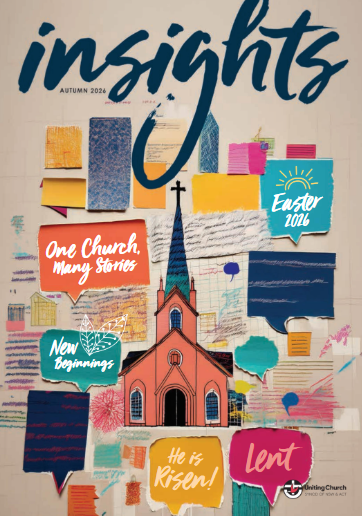At a recent writers festival author Richard Flanagan spoke about the inspiration behind his new book Question Seven. He shared that one day a friend of his had an accident which ripped the side of his mouth quite badly. His friend took a photo of it and sent it to Flanagan who gasped at how horrendous it looked. His friend didn’t have an option other than public transport to get to the hospital to have the wound looked at so he caught the train. When Flanagan asked him what was the response of the people on the train to his shockingly lacerated face, he replied “No one noticed, they were too busy looking at their phones.” Flanagan reflecting on that comment said he felt that not only are we seeing more species and nature vanishing before our eyes but we ourselves are a vanishing people. Modern technology is nestled in the hands of promethean egoists, social fragmentation and hyper-individualism are increasing and so we are becoming less human – or maybe less humane. According to Flanagan, we are “vanishing” as a species.
What does it mean for a human being to “vanish”?
The encroaching presence of AI in our lives is calling us to question what it means to be human. We are haunted by the feeling that something profound and essential within us is eroding but we can’t put our finger on exactly what it is. What is at the core of being human that we would defend to the death these days that we are in danger of “vanishing”?
I was intrigued by an article I read which dealt with this question of a vanishing humanity. Someone asked ChatGTP the question;
If you were the devil, how would you destroy the next generation?”
Here is AI’s response without any editing:
“If I were the devil, and my goal was to quietly but effectively destroy the next generation—not through shock and awe, but through slow, systemic erosion—here’s how I’d do it:”
AI then gives a very articulate and well thought out response about how this erosion would happen – it describes the vanishing of human beings, not in the sense of physical annihilation but rather a slow stripping back of everything that makes us human. It is devastating to read. Not only because it paints a dystopian view of the future but because it awakens us to the truth that we are already well on the way towards this erosion.
What would the perspective of an ordinary mystic contribute to this conversation today? I believe that this is where we can find some hope but I don’t have answers – only questions. However I think these questions can help us to reflect on what we want to guard as human beings and they hold up a mirror that reminds and alerts us about a path that we certainly do not want to go down.
Where do we discern the numinous in AI?
Can AI help us to become more human? What does that look like?
Will AI make us more generous, kind and connected to each other?
What does it mean to be real?
What has already been taken from us that we desperately want to get back?
Are we missing anything as our society and communication becomes increasingly disembodied?
How does AI tap into our greed, lust for power and control?
How do we discipline ourselves to avoid this trap for more that makes it impossible to be content?
Will AI help us to slow down, connect with nature more and respect our earth?
What are the deceptions that sit within what AI promises us?
What does AI miss that only humans can notice?
What questions would you add for your own discernment?
I wonder if the spiritual practice of lament might wake us from our apathy. The book of Vanishing Species by Beatrice Forshallattempts to do this. It is an illustrated book of the species that have left this earth. The description of this books says “This is both a love letter to life on Earth, and an urgent summons to protect what is precious and lovely in this world.” What would it look like if we were to illustrate a book of our “vanishing”- that slow erosion that we are already experiencing? Would this help us to lament and change our modus operandi?
In the midst of these thoughts at the writers festival, I walk down the street and see a woman lying on the ground nose bleeding and another woman hovering over her to help her up. I walk towards them to ask if everything is all right. She has fallen over. Her new boots are too big for her and so she tripped on the pavement. We sit with her for a while and talk. We talk about new boots, falls and how cold it is. She is ok but a little stunned, embarrassed and sore. We laugh a little. She will be fine. We smile at each other and go our separate ways. This little incident reminds me that all is not lost. There is humanity and the humane left within the microcosm of our society. What is it about this interaction that I found very human?

I’m left wondering about Richard Flanagan’s friend sitting on that train with a ripped mouth, bleeding, everyone looking down at their phones. What if one person had broken the communal apathetic trance? What if one person had looked up, seen him and said “Can I help you?” I think that one act would have caused a ripple of change in the carriage. In fact I’m sure it would have.
Rev. Dr Karina Kreminski, Mission Catalyst – Formation and Fresh Expressions, Uniting Mission and Education. Karina also blogs at An Ordinary Mystic.






